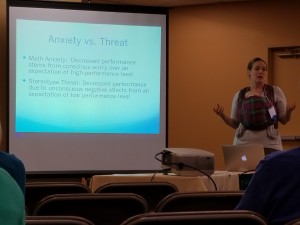Interconnectedness, my spellcheck informs me incorrectly, is not a word. And yet, lately my life seems to be not a tangled web, but a patterned weaving that any spider would be proud of. I am married and have two daughters because one woman advised the administration that my beloved school in Downeast Maine should be shut down (due to too few children), and it was, and I had to move. Eventually, I met my husband (who I would not have met without that move), and that same woman, through a series of fortunate events, became my elder daughter’s nanny ten years later.
I met my husband in a music bar in Maine, and the topic of conversation was mutual friends from our childhoods – his in Wiscasset, Maine, and mine in Lexington, Massachusetts. He stayed with a friend on Matinicus Island, where a guy I went to high school with had a summer place, and through three degrees of separation, there was our shared history (and reason to exchange phone numbers).
This week, I spoke in New Hampshire for the Association of Math Teachers of New England. The topic was math anxiety, something I researched extensively for my master’s degree. I was interested in the topic because back in my own school days, I had a full blown case of it, cemented by my eleventh grade math teacher telling me that I didn’t have a mathematical mind and should never take any more math, as it would just “stress me out.” Certainly my secondary school education did stress me out, becoming part of my motivation in relocating to Maine, “the way life should be.” I found a peace here that I deeply needed.
But his comment left its mark. I did not take any more math beyond calculus, despite having the grades for it and majoring in the sciences. I worked in genetics research, ending up in a fabulous neuro lab. Any statistics or other math I needed I learned in context and memorized without understanding. I could compute, that was all.
And so math stayed a constant source of anxiety until I became an elementary school teacher. In order to teach, I had to relearn math from the ground up. It was one of the most empowering things I have ever done. Why had no one ever told me that math was so EASY? That it made so much sense? That it was all interconnected? I was inspired. I learned all I could, and I became a math teacher, first to fourth and fifth graders, then middle school, then high school. Algebra, once so challenging and nonsensical, became a language that I was fluent in and loved to read and speak.
Eventually I turned back to my interest in genetics and neuroscience and began the Mind, Brain, and Education program at Harvard Graduate School of Education. While I was there, I researched math anxiety and its effects on cognition. I presented that research yesterday. In the audience?
Teachers, nodding in agreement and enthusiasm, from Lexington, Massachusetts, where it all began.
It is moving to me on so many levels that there are such dedicated, motivated, receptive teachers now in charge of the children of my hometown. And that my childhood math anxiety has followed the twisting, interconnected strands of fate not only so that my daughters (also in the audience) can love math, but that somehow the end can come back to the beginning, and stop the cycle before it begins.
It is a good life (and yes, that is my youngest daughter on my chest).

